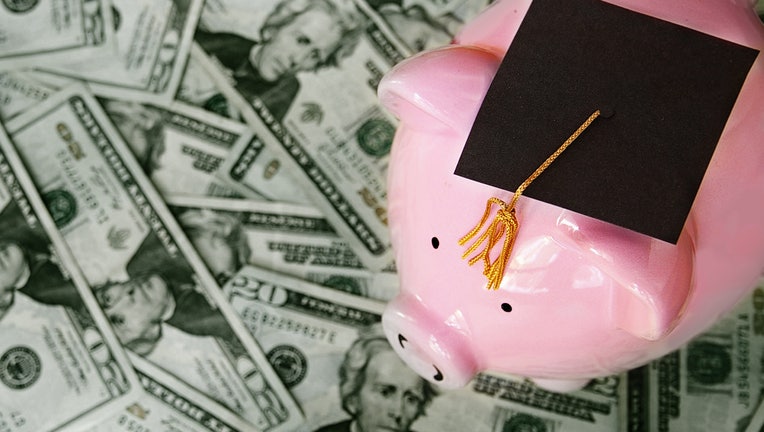Biden’s stimulus bill’s effect on student loans: What to know

Learn what impact Biden’s stimulus bill has on your student loans. (iStock)
The COVID-19 pandemic has led to job losses and pay cuts for millions of Americans.
According to a recent Pew Research study, 49% of workers who lost income after the pandemic hit are still earning less money than they were before. To provide some relief, the federal government paused student loan repayment and set the interest rate to 0% for some federal student loans. However, the loss of income has made it more difficult for borrowers who are still responsible for repaying their loans to afford their monthly payments.
Meanwhile, rates for student loan refinancing continue to drop, offering borrowers a chance to lower monthly payments. If you can’t afford your current monthly loan payment, or just want to pay off your debt sooner, now may be the best time to refinance your federal student loans. If you’re interested in refinancing your student loan, use a tool like Credible to prequalify and compare rates from multiple lenders without affecting your credit score.
In March, President Biden signed the American Rescue Plan Act. This stimulus bill included a section on federal student loans. Read on to learn what was included and how it affects your loans. We’ll also dive into the pros and cons of student loan refinancing.
How Biden’s stimulus bill affects student loans
The recent stimulus bill includes a section on student loans that makes student loan forgiveness tax-free through the end of 2025. This tax treatment applies to both federal and private student loans.
Prior to this, the only program that offered this benefit was the Public Service Loan Forgiveness (PSLF) program. After completing the program, borrowers weren’t taxed on the amount forgiven.
Now that this change has been made, the benefit extends to federal student loan borrowers who are enrolled in an income-driven repayment plan. Borrowers in this program who are set to receive forgiveness prior to January 1, 2026, will no longer have to pay taxes on the forgiven amount.
While the tax-free forgiveness rule also applies if you have private student loans, it’s not clear how this will help you if you’re currently struggling to repay your education loans. Currently, the only option besides refinancing for private student loan holders to get relief is to enroll in their lender’s forbearance or deferment program (if offered). Although there has been talk of the Biden Administration helping private student loan borrowers more, private student loan forgiveness is not a given.
If you’re currently struggling to pay your student loans or anticipate struggling once federal assistance ends, consider refinancing your student loan. To see how much your monthly payments could be, use a student loan refinancing calculator.
Before you refinance your student loans, though, learn what the pros and cons are.
Pros and cons of refinancing student loans
When it comes to refinancing your student loans, there are several pros. Some main benefits include the chance to reduce your monthly payment, save money on interest, consolidate multiple loans into one payment and get out of debt faster. To save money refinancing your student loan, you’ll need to secure a lower interest rate than you have now.
If you only have federal student loan debt, there’s little incentive to refinance your student loans, especially if your loans are paused. When you refinance your federal student loans, you give up access to income-driven repayment plans and the Public Service Loan Forgiveness program. With these programs, your remaining debt is forgiven after making a certain amount of payments.
In addition, if you’re enrolled in one of these plans, your monthly payments could be more affordable, since payments are based on your income. That way, if your income decreases, you have the flexibility to lower your monthly payments.
Finally, you’ll most likely need a good credit score to score a low interest rate. To remedy that problem, consider applying with a cosigner to increase your approval odds.
Final thoughts
It’s hard to predict when, or even if, the federal government will pass student loan reform legislation. While the most recent stimulus bill eliminates taxes on student loan forgiveness through 2025, it doesn’t offer any immediate relief for those who are currently struggling to repay their student loans.
Additionally, If you have private student loans, you don’t have access to income-driven repayment plans or the Public Service Loan Forgiveness Program — two programs that offer forgiveness. Saving money now by refinancing your private loan, instead of waiting on reform that may never come, might be a better move.
If you’re interested in refinancing your student loans visit Credible to learn more about private student loans; you can get estimated rates from multiple lenders without impacting your credit score.
Have a finance-related question, but don't know who to ask? Email The Credible Money Expert at moneyexpert@credible.com and your question might be answered by Credible in our Money Expert column.

